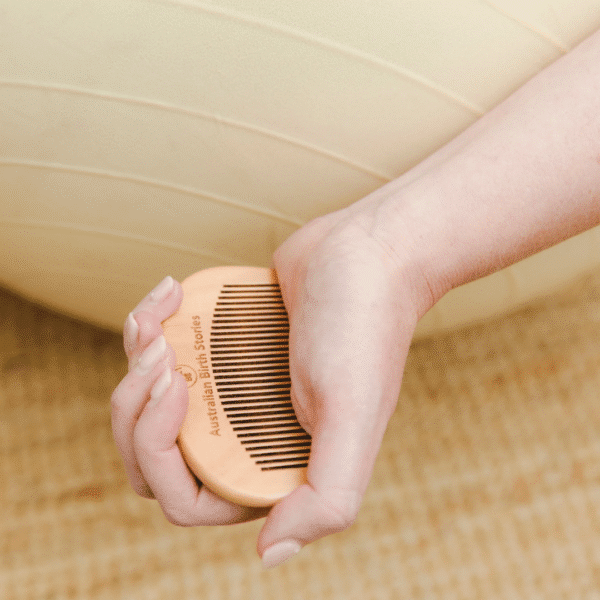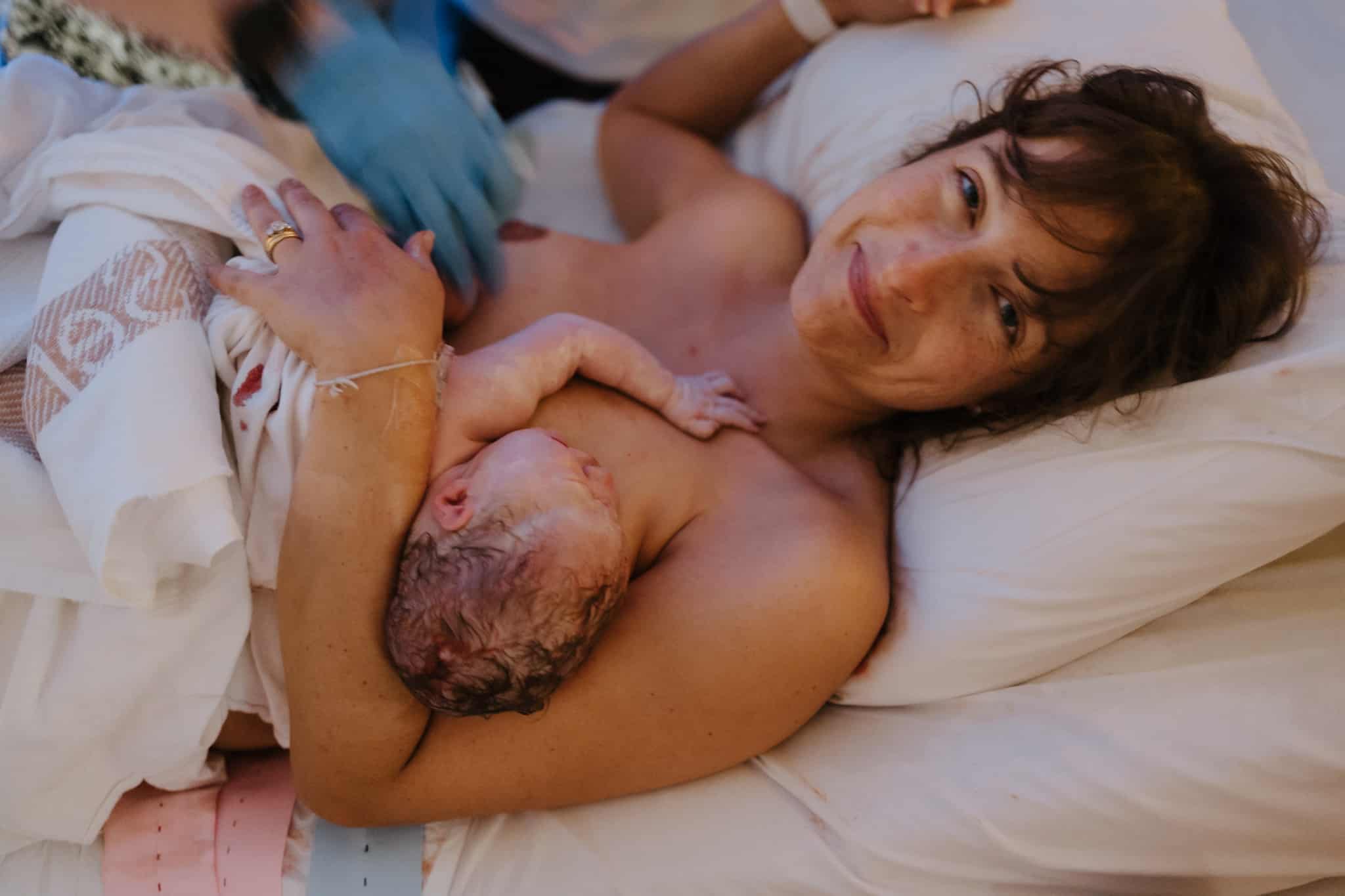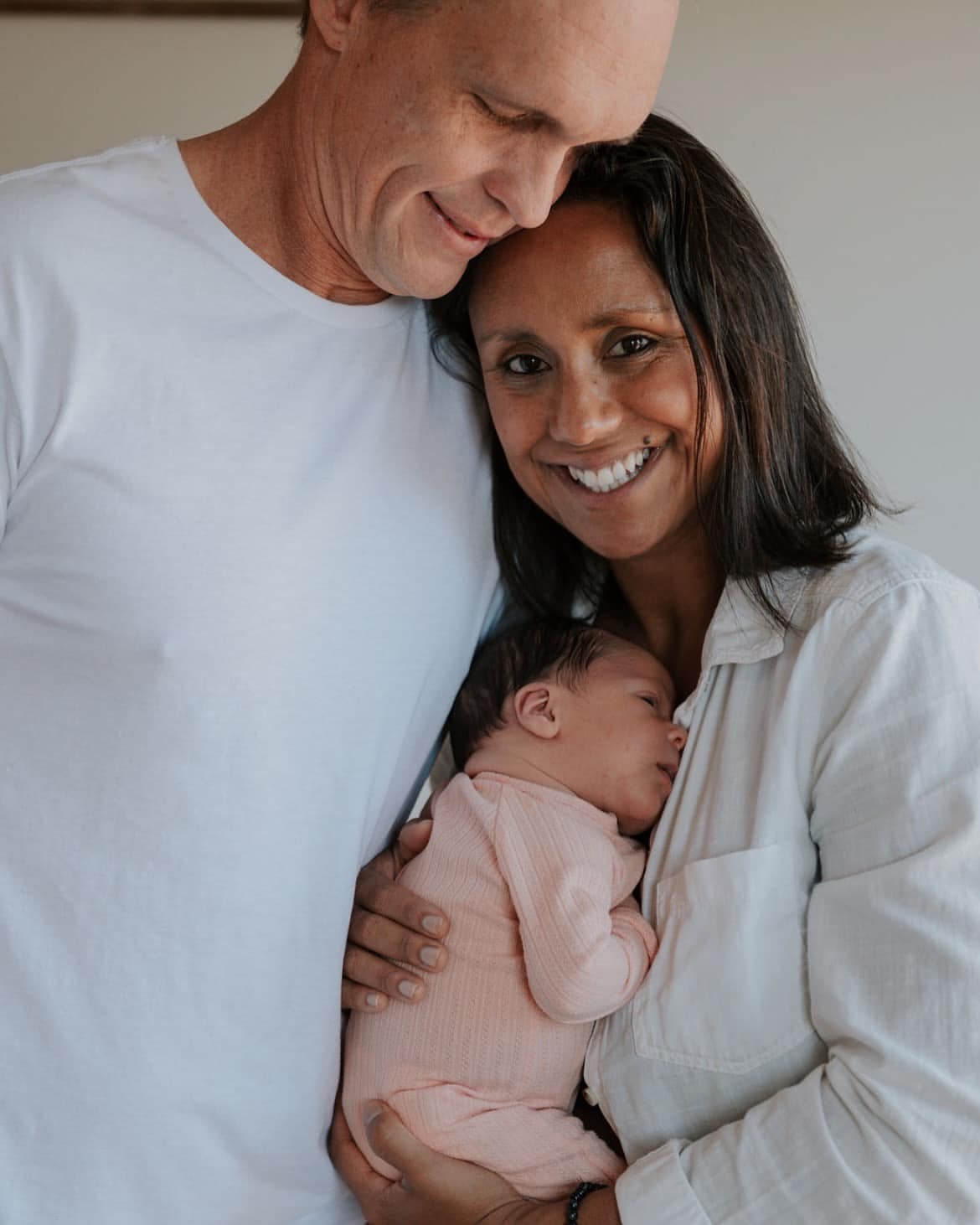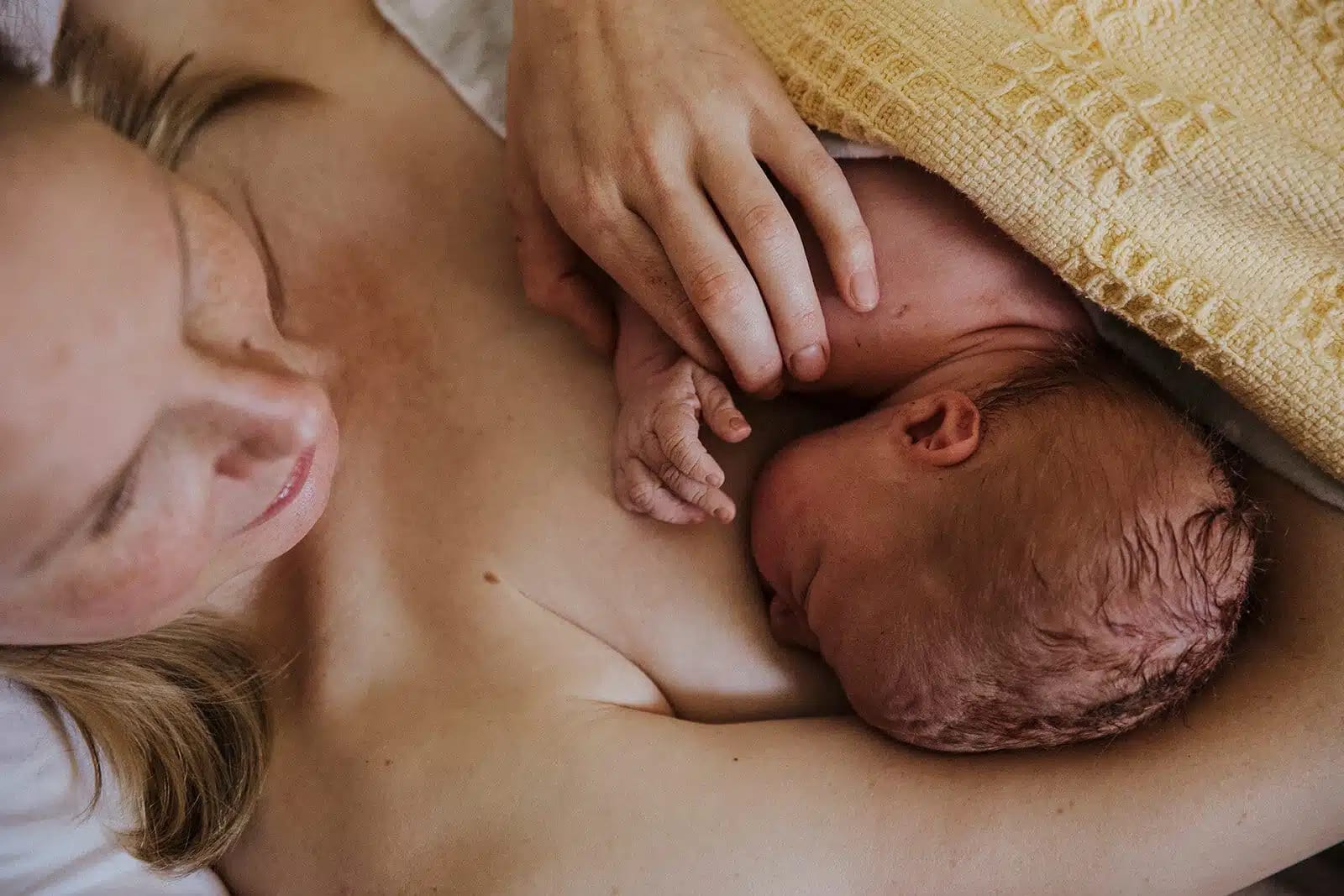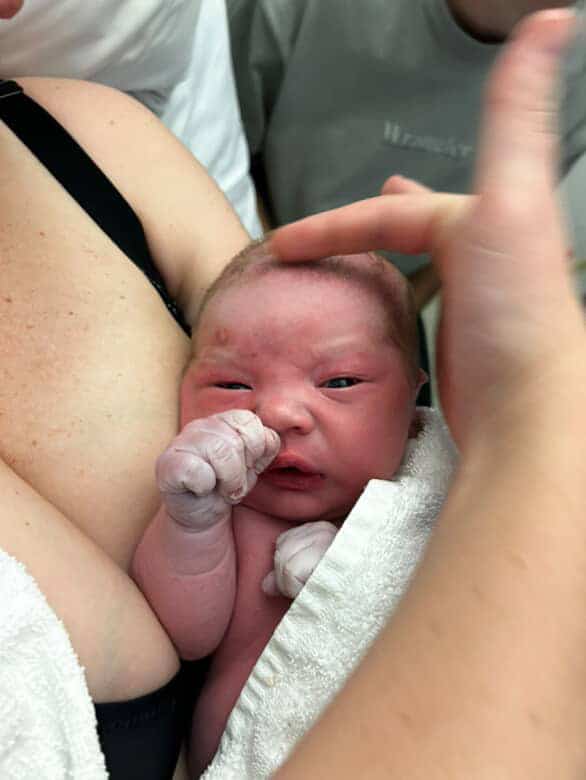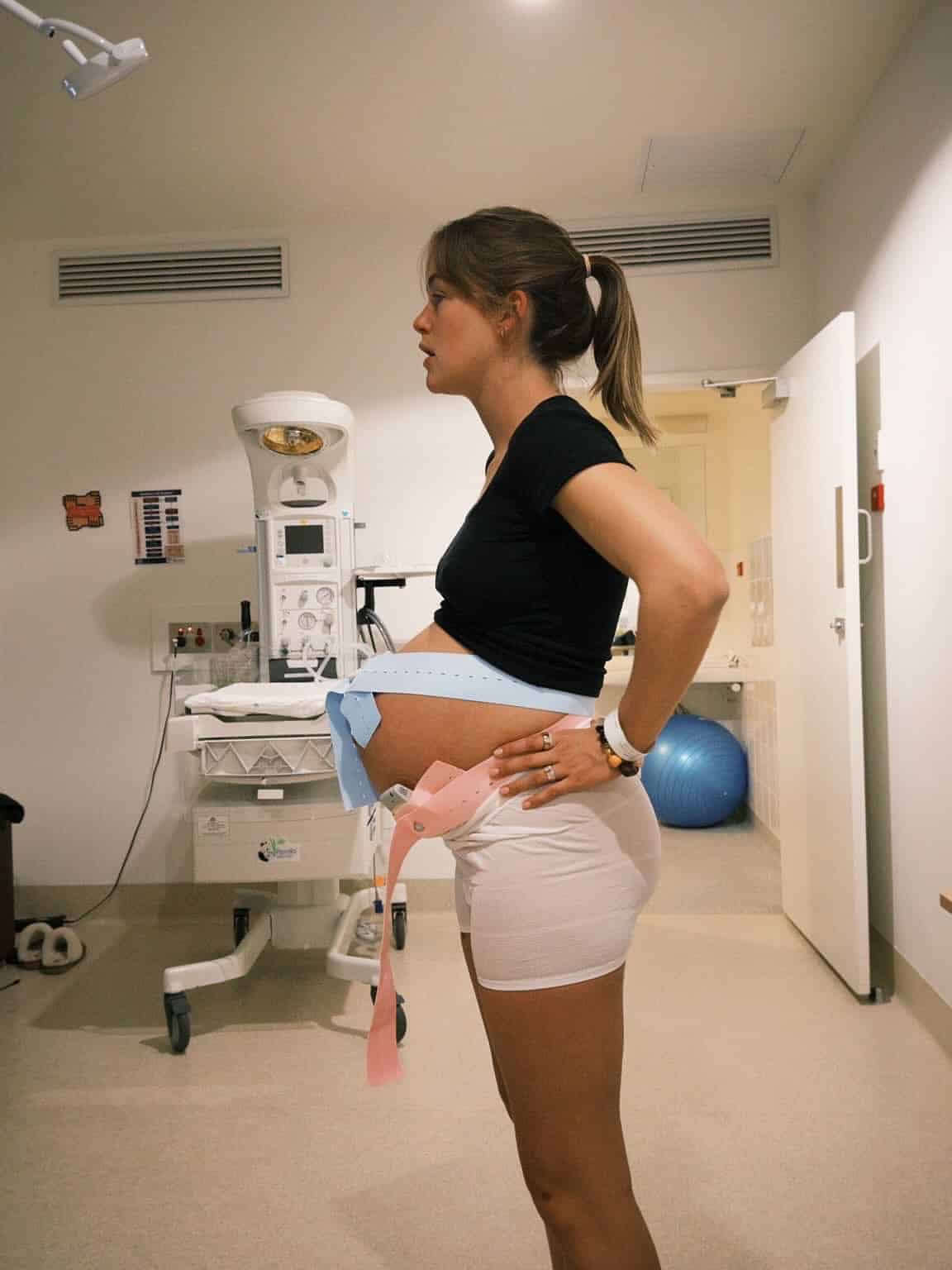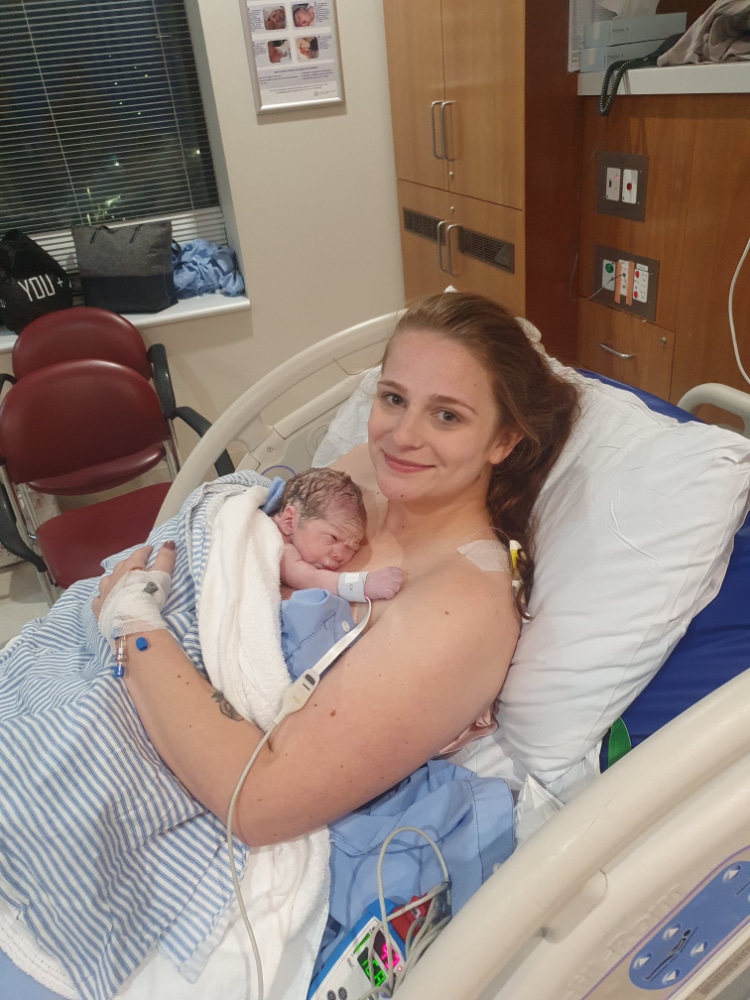Podcasts Sarah Leverton
EPISODE 227
Sarah Leverton
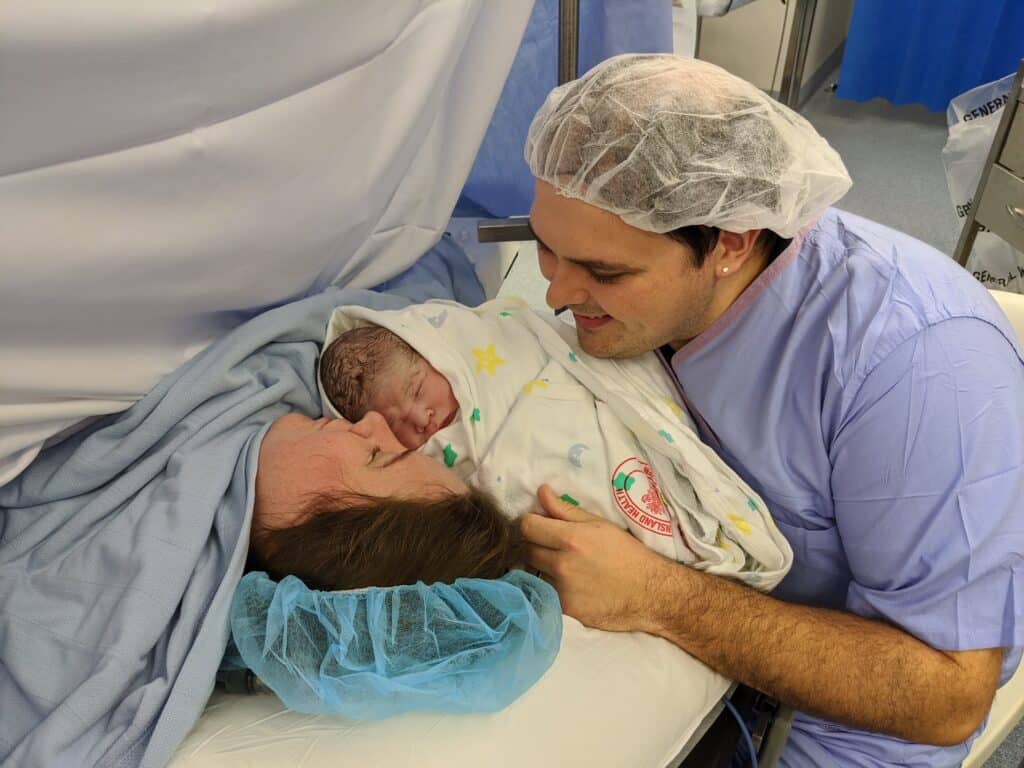
Sarah was diagnosed with Type 1 Diabetes when she was ten years old. Her endocrinologist emphasised the importance of stable blood sugar levels to maintain a healthy pregnancy so she spent two years closely monitoring herself before she conceived baby Henry.
“I have a check-up every three months and my endocrinologist has always said that a planned pregnancy is very much preferred for someone with type 1 diabetes. I actually manage mine through an insulin pump that I wear all the time so it gives me little doses of insulin all day so I don’t have to do the manual injections. There is a little needle in my stomach so I change it every day; it’s so much easier than the 4-5 manual injections I had each day when I was younger.
From the outset she was considered high risk so couldn’t apply for a midwife-led program but was happy with the support from her GP and the obstetric team at her local hospital. Much like Gestational Diabetes, Type 1 Diabetes can result in a bigger than average baby so Sarah had extra growth scans towards the end of her pregnancy and a planned caesarean was mentioned on more than one occasion.
The worst thing about the first trimester for me was low blood sugars so I would get shaky, feel very weak and I had to eat jelly beans to bring my levels up. From 20weeks onwards my blood sugar levels started to climb but because I use a continuous glucose monitor I was always alerted before they got too high. The symptoms of high blood sugar level are very unpleasant – thirst, frequent urination and feeling really unwell.”
Sarah was booked in for an induction at 38weeks because of her type 1 diabetes and the suspected size of baby Henry. The morning before her scheduled induction she had a bloody show and presented to hospital where the obstetrician confirmed she was 1cm dilated and wouldn’t need a medical induction. She returned home to labour and while she felt anxious, she didn’t return to hospital till much later when her contractions were feeling both intense and painful. Her midwife confirmed she was 2-3cm and encouraged her to use the gas and air to ease the discomfort of contractions.
“It never occurred to me to move off the bed; I just felt paralysed there. The midwife suggested the shower but I couldn’t muster the energy. At 1am I requested an epidural and an hour later the anesthetist arrived; it was the longest hour of my life. I expected it to be there straight away and it wasn’t.
“I had at least six or seven internals and they were horrendous; I just found them excruciating. At one point the obstetrician did it and then a student midwife had a go and then another one; i didn’t say no, I didn’t know I could say no….but I know for next time that I can refuse them.”
“I got to 8cm and told me they’d check me again in 2 hours and I’d actually gone backwards because my cervix was swollen (cervical lip). I remember feeling so scared…I was terrified of a caesarean.It was so cold in theatre and I was shaking uncontrollably…the cesarean only took about 15minutes and he was born but I was in recovery for a really long time; I didn’t get to hold him, I only got to see him before I was taken to recovery. I saw on my discharge letter that I had a postpartum hemorrhage PPH of 800ml but they never told me about that; I only found out because I read it on the letter.”
Henry was taken to special care after a few hours because the midwife was concerned with his fast breathing. Sarah was still dazed from the drugs and was unsure what was going on; when she visited him in special care he was in a humidicrib yet no one explained why. He was tube fed for the first few days as he didn’t have the strength to breastfeed and he then developed jaundice. Sarah also suffered unexplained high blood pressure and despite negative results for pre-eclampsia she was kept in hospital for two weeks. She admits it was mentally challenging but she also had the ongoing support of the midwives who guided her through her first few weeks of breastfeeding.
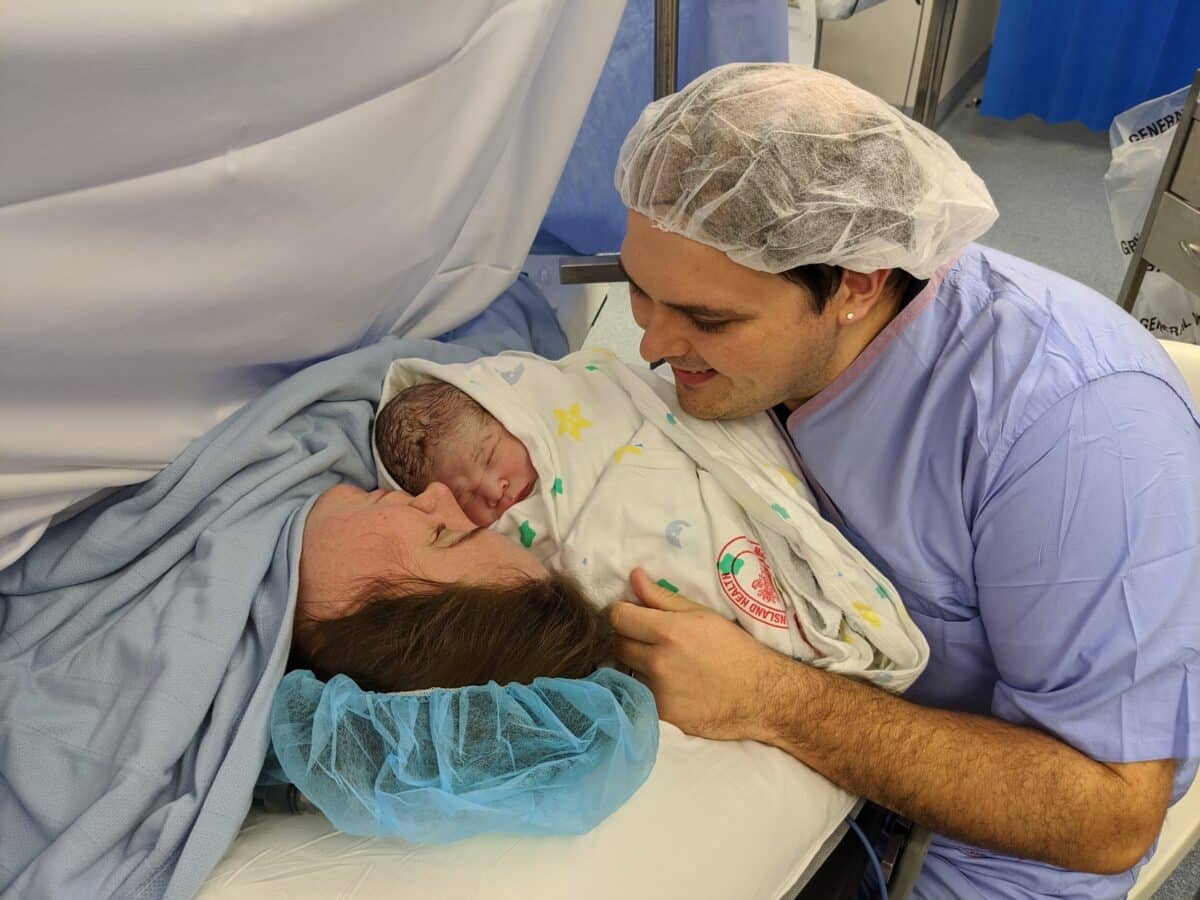
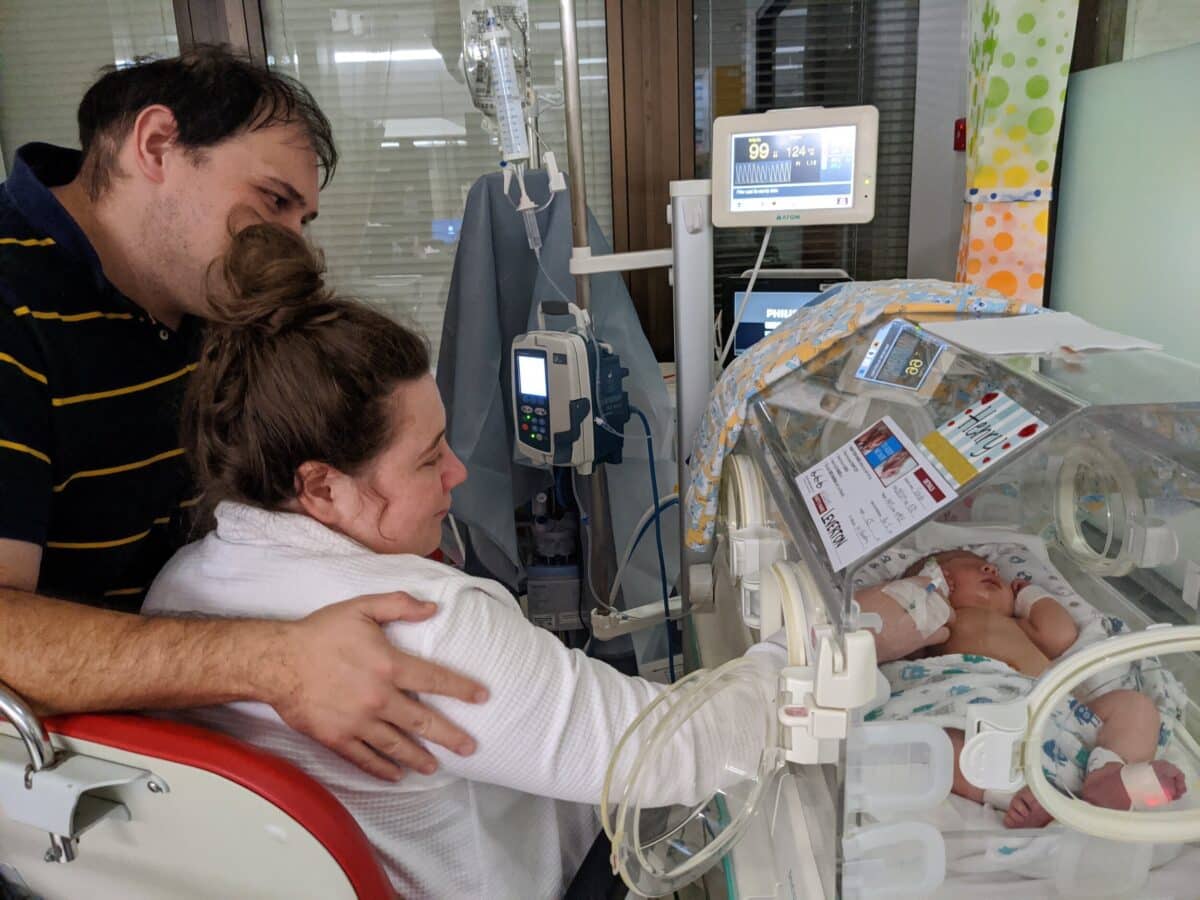
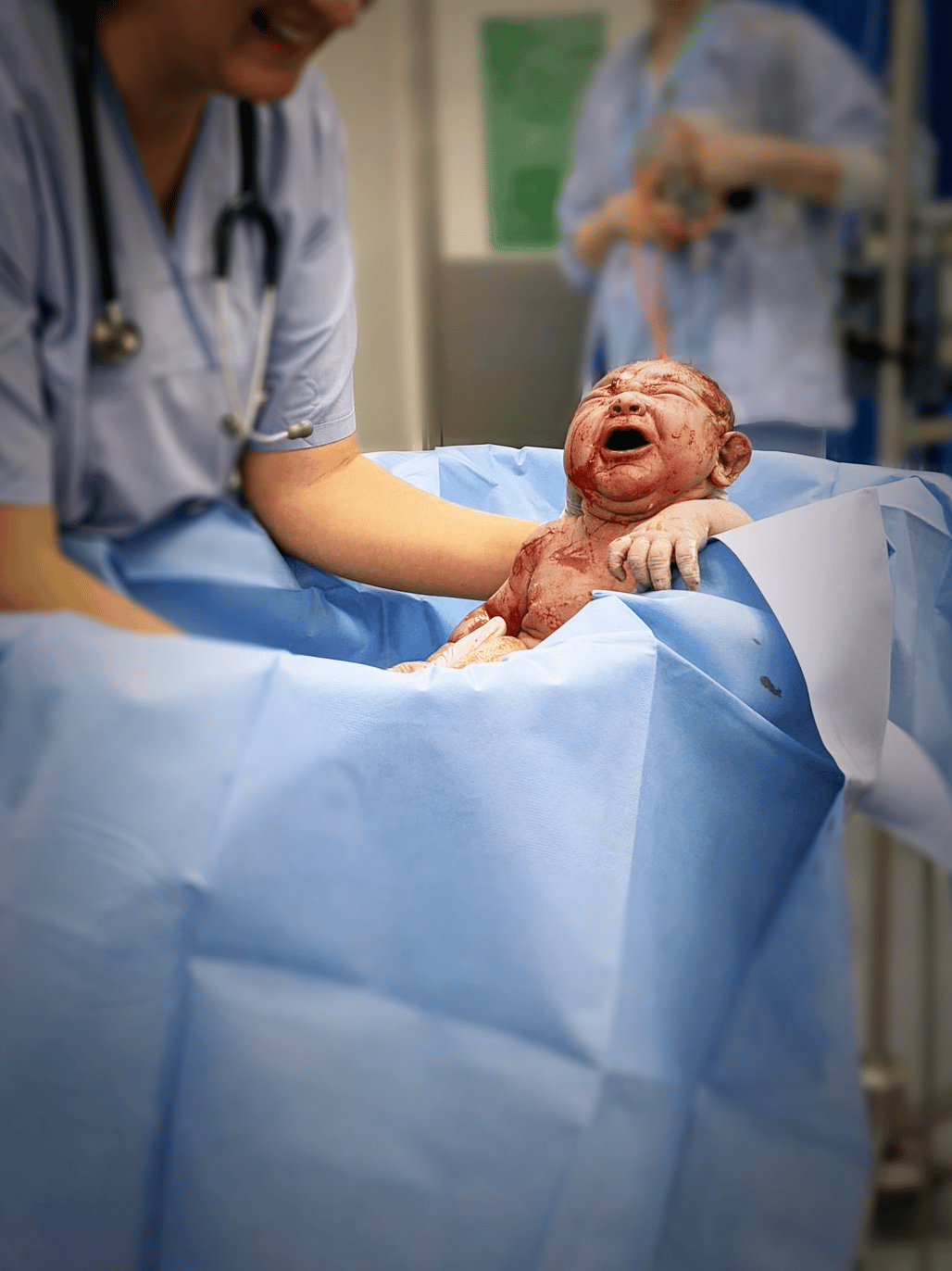
Topics Discussed
Caesarean birth, High blood pressure, Special care nursery, Type 1 diabetic
Categories
Related Products
-
Birth Combs: Harness Your Body’s Natural Pain Relief
$24.95Crafted from smooth, natural wood, our birth combs activate specific pressure points in your hands that trigger your body’s innate pain-relieving responses.
Join the conversation
Sign up to get the latest updates, freebies, podcast releases straight into your inbox
@AustralianBirthStories
Follow along with us
@AustralianBirthStories
Follow along with us
@AustralianBirthStories
Follow along with us
@AustralianBirthStories
Follow along with us
@AustralianBirthStories
Follow along with us
@AustralianBirthStories
Follow along with us
@AustralianBirthStories
Follow along with us
@AustralianBirthStories
Follow along with us
@AustralianBirthStories
Follow along with us
@AustralianBirthStories
Follow along with us
@AustralianBirthStories
Follow along with us
@AustralianBirthStories
Follow along with us
